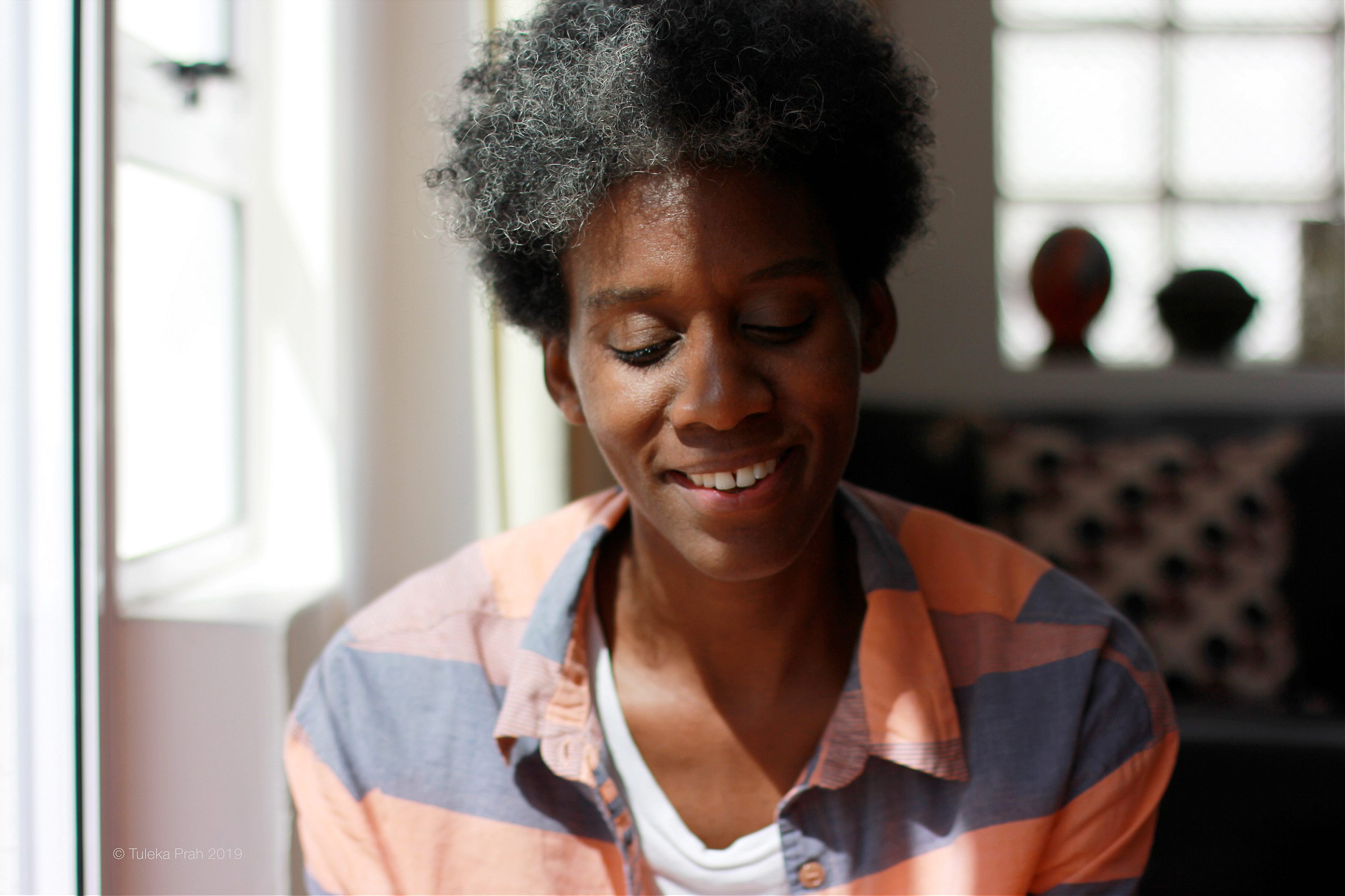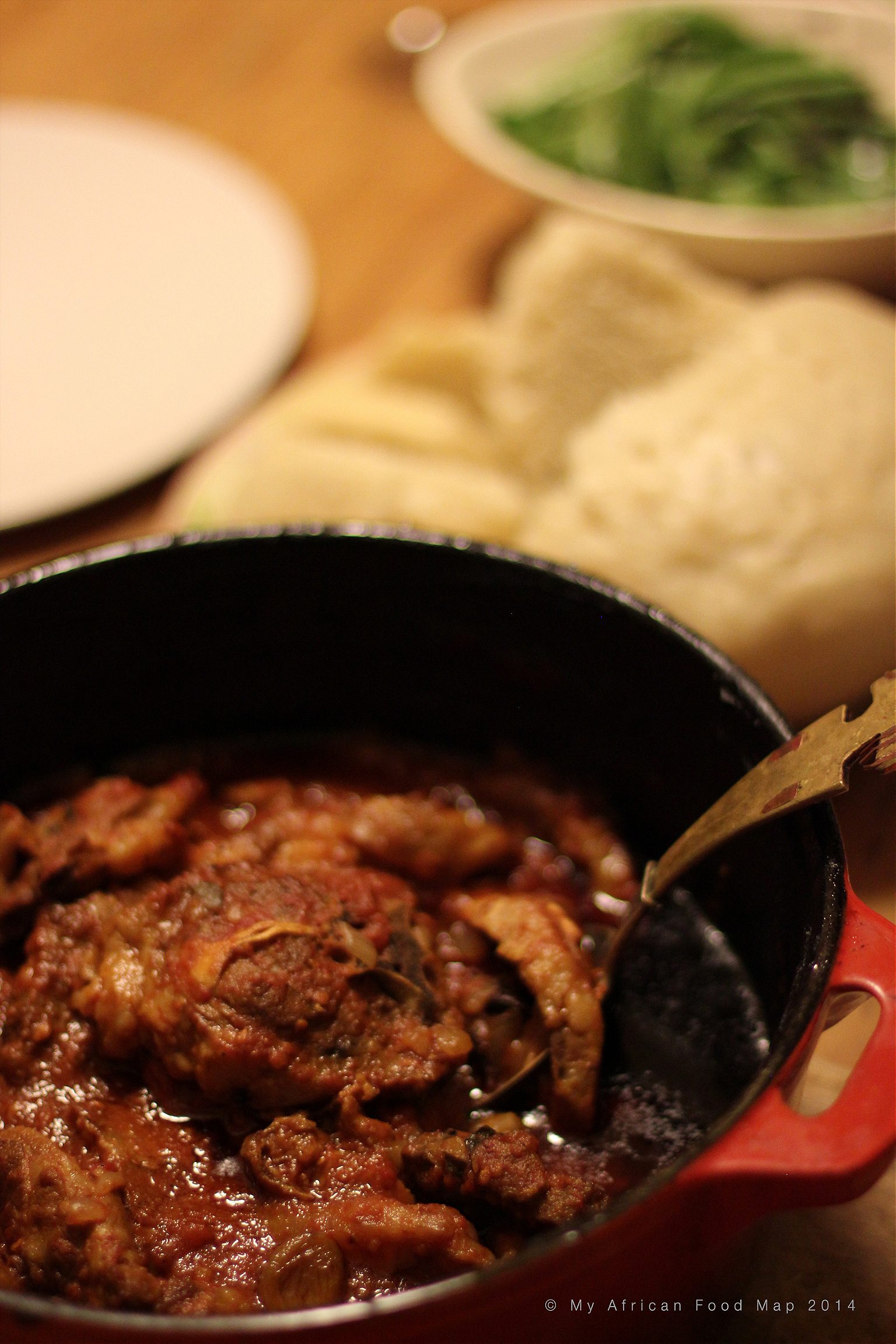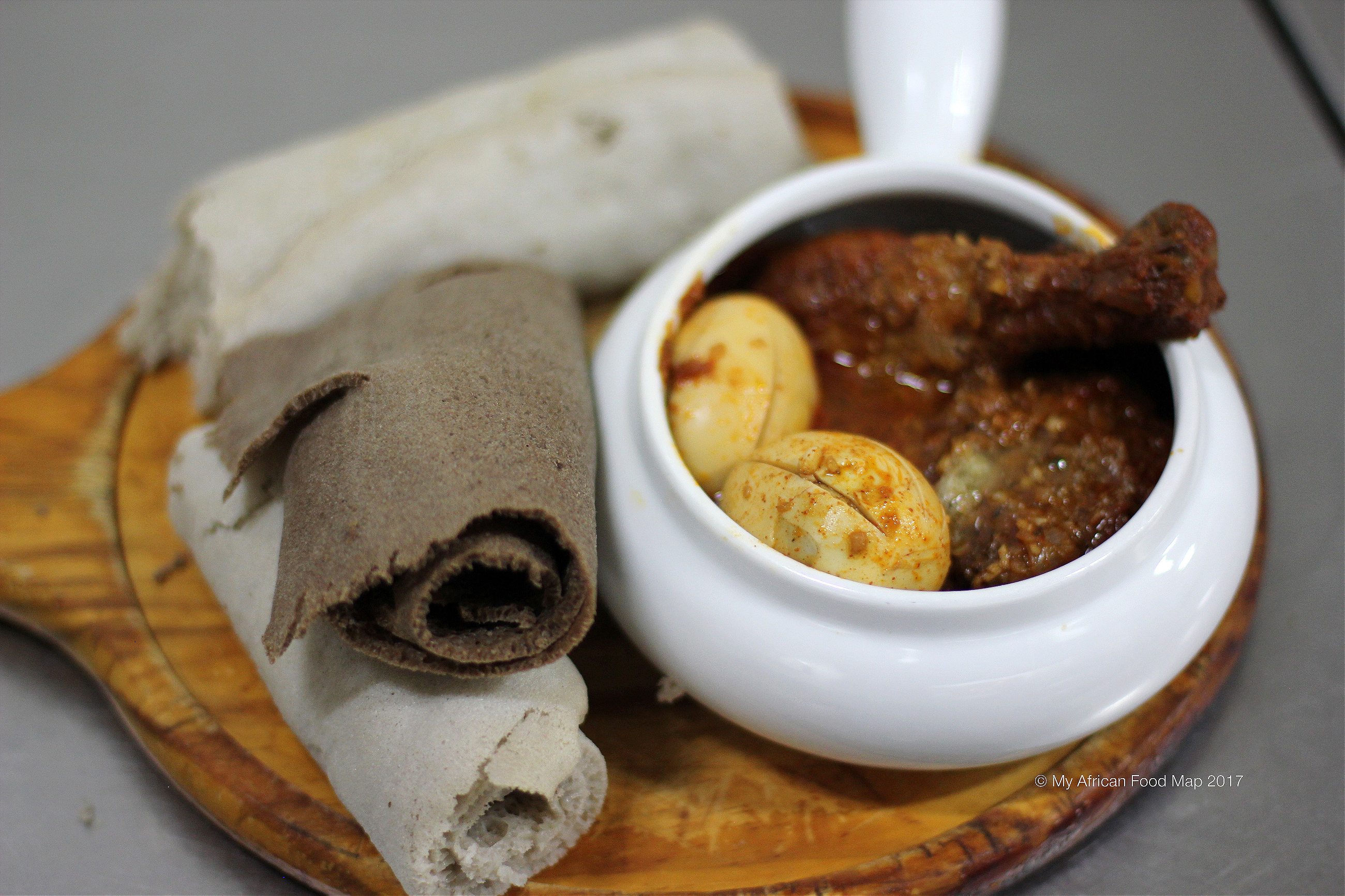Quality content about African food is lacking. Filmmaker Tuleka Prah is changing that, one recipe at a time.
With critically-acclaimed shows like Chef’s Table and The Great British Bake Off, as well as whole networks and websites dedicated to food, viewers get plenty of opportunities to learn about food from around the world that they may never have tried or even heard of.
But according to Berlin-based filmmaker Tuleka Prah, quality content about African food is lacking, compared to other places in the world. To highlight food from the continent, the daughter of a South African mother and a Ghanaian father collects recipes throughout Africa as part of her My African Food Map project. Tuleka travels to an African country and films locals as they prepare the most popular dishes in their country.
The filmmaker hopes that her documentation of Africa’s various cuisines will inspire people to look at the continent, its people, and its food in a better light. Prah spoke to Roads & Kingdoms’ Tafi Mukunyadzi over the phone about how her project came to be and what it will take to change the image of African food.
Mukunyadzi: What inspired you to start the My African Food Map?
Prah: I happened to be looking for a recipe because I felt like [eating] some kind of comfort food which was connected to my upbringing. I went online to look for some recipes because I just didn’t want to wing it anymore. I don’t know, maybe this is part of your experience, but a lot of foods from black kitchens are very improvised. You’ve maybe watched someone make it a couple of times, but then you just kind of improvise.
Anyway, I started looking around, and all the pictures of the dishes were terrible and the content was really badly exhibited. I thought that it lends to the stereotype of African food being just for sustenance—just like survival based. Most of the food I’ve eaten on the continent always tastes really good. Even though the pictures looked rubbish, I knew those dishes tasted good.
If I didn’t know what this tasted like, I would be immediately put off and I wouldn’t want to try it. So, I thought, “Instead of just complaining about it, why don’t you do it then, and see what you can do?”

Mukunyadzi: You mentioned how African food is seen as just sustenance by some people. Do you think that the image of African food has changed for the better in recent years?
Prah: No. I don’t want to sound like a pessimist. I think there’s been a step forward, but that’s mainly because people—Africans in the diaspora and Africans on the continent—are creating content related to food in places where they’re interested in reporting from. So, there are a lot of Nigeria-based blogs and websites and things like that, but those are still self-funded.
In the food internet world, there’s been so many, aesthetically-speaking, leaps forward that people have taken but I feel like a lot of these blogs that feature African foods are still a little bit behind. Of course, there is some kind of shift from the time that I started doing this project, but it’s definitely not at all where it could be. When you go to Netflix, there are an infinite amount of programs on foods from other countries. And besides Parts Unknown, there’s really no quality content about food from the continent.
Mukunyadzi: Would you like to do a TV-version of My African Food Map?
Prah: I’ve tried, in the last couple of years, to pitch Food Map to TV channels because I needed, obviously a better source of funding so that I could do more work and visit more countries for the project. The resounding feedback has always been, “Oh my god, this is such a great idea. Let’s see if we can find a co-production partner.” And then it never pans out. And then they always want to really low-ball it.
Mukunyadzi: What’s the scene in Berlin in terms of food from the continent?
Prah: My god. Non-existent. For some interesting reason, Ethiopian food has kind of crossed over… there are more people who know more about Ethiopian food than they would about, say, Senegalese food. I find that interesting.
I would say, for example, Ghana, Nigeria, that band of the African continent, their food and their types of sauces are like Thai curry—they’re fiery and rich. And I think, if people knew more about it, if it was like a popular trendy food to eat, it could easily, easily become a favorite for people, because it’s quite straightforward once you know what the taste is that you’re going for.
Maybe you’ve caught me on kind of a pessimistic day. I don’t really see how things will change unless there is a concerted effort from the companies with the funds to rebrand and re-market how African foods are seen by people, globally. I think that once people start to do that and once money starts going into promoting foods from the continent, in a way that is up to par with how everybody else’s foods are being exhibited or showcased, then I think little pop-ups will come up, and people will start their little food trucks, and there’ll be more. There’ll be more.

Mukunyadzi: You mentioned that Ethiopian food is fairly well-known compared to other African cuisines in Berlin. Could it be that there’s an element of exoticism involved? Sometimes a certain type of cuisine is seen as a very exotic thing, so people are much more willing to try it, even if it scares them a little bit. It sounds terrible because why would you want to exoticize something?
Prah: I see what you’re saying. I actually had a conversation with someone from the U.K., with an Indian background. I was talking about whether or not if it irritates her, as someone with that background, every now and then when parts of your heritage are, as you said, exoticized, and then commodified. Someone’s like, “Oh my god, I love yoga…” while at the same time, they will look disparagingly at other aspects of your heritage.
The subcontinent is still seen as a place where people are climbing over each other to get the scraps. It’s just like… the food is just as raggedy as the people—that whole vibe. And it doesn’t help that when they do look at the foods, they’re like, “Ew, that looks really gross. What is that?”
Mukunyadzi: So, you have to deal with these very deeply-rooted ideas of what the food is and who the people who make the food are.
Prah: Exactly. Food is always tied to the people. That’s actually why My African Food Map, for me, is in many ways low-key, high-key, quite political.
Mukunyadzi: What’s been your favorite experience of this project, so far?
Prah: My favorite experience is consistently the thing when people are like, “You’re on holiday?” And I say, “Oh, I’m actually here doing this food thing,” I ask them what their favorite dish is, and people get really excited about it. They’re like, “Oh, no, no, no, but not that, you should try this.”
Sometimes people are surprised. I remember a lot of people in Senegal said, “You want to know about Senegalese food?” They were a little bit surprised that there was interest in it.
Mukunyadzi: You must have been eating really well. What’s your favorite dish that you’ve documented?
Prah: Yeah. Thiebou dieune is 100 percent at the top of the list. It’s basically a fish and rice paella. It kind of blows my mind because a lot of the ingredients used—like rice, tomatoes, fish—are things that are familiar. You’d think that you’ve got every single flavor out of them, but when you eat this… When I was in South Africa, there was this cook who made this dish called lamb bredie. It was so, so, so good. It’s one of the project’s South Africa features.
If I had money I would have the people who make the dishes travel with me and go to different cities and do cooking workshops so you could learn how to cook these dishes, directly.

Mukunyadzi: How do you find the people who you interview for these recipes?
Prah: I just ask. I remember in Kenya, for example, I was collected by this taxi driver. I talked to him about food because the ride from the airport to the place was quite long. He would tell me, “Oh, you should go here. You should take photos here. You should speak to this woman.” I would talk to another person who said, “Oh, you know who makes the best thing? You should speak to this person.” Then I try and find out how to get to that person.
Mukunyadzi: How do people react when you ask to film them while they’re cooking?
Prah: You have to get comfortable with them. They have to be okay with you. That’s the other thing that you don’t really see. Those people that I’m dancing around with the camera, they’ve gotten to the point where we’re cool. I have to be very respectful. It’s a very tough job, actually. I have to be really observant, and I have to feel it out. I have to see if maybe this is the kind of situation where I immediately offer to get all the ingredients, or I should slip them some money at the end, or if no money should be involved because that would be offensive. There are all these little subtleties that I have to navigate.
Mukunyadzi: What do you hope viewers get out of your project besides learning how to make various dishes?
Prah: I hope people gain an interest in whatever country that I cover. If, for example, you’ve never considered visiting Senegal, if you don’t even know where it is on the map—which I’m sure a lot of people don’t—maybe this will inspire you to look it up. And then maybe when they go there, they’ll have an inkling of what they could try, food-wise.
For people who are Senegalese who know the food, I hope that when they watch the videos or they look at the photos, they’re like, “Yep, those are my people. That’s my food.” I want them to be really proud of it, and to share it, and feel like it’s a fair and good representation of the foods that they are familiar with.
Mukunyadzi: Are there any other projects that you’re working on?
Prah: When I’m not filming the Food Map, there’s this thing I do that’s called African Food Friends, which is about documenting the experiences of black people in the diaspora who are meeting and connecting over food.
What I typically do is go to different countries and find people who are big on social media and well-known in their countries. They identify as being from that country while being black, so I know that they have probably had the experience of white Europeans looking at them and saying, “Well, you’re not us.” I film the discussion over a meal that I prepare. The meal is always something inspired by recipes or dishes from a black kitchen, whether it’s South American, North American, or African. It’s interesting for me to see and hear how they navigate their identities.






